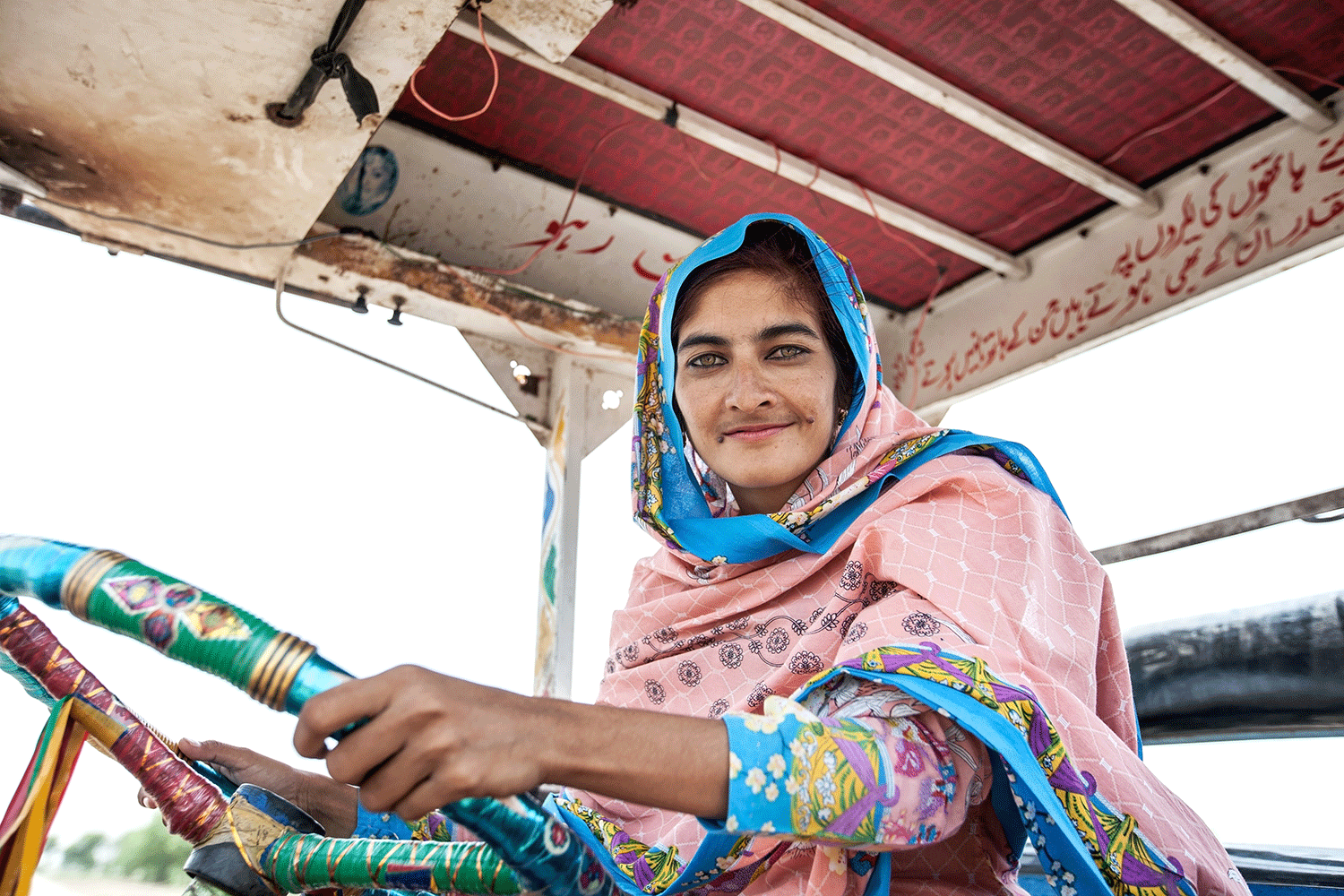‘Female cotton farmers in Pakistan will be the voice of empowerment and gender equality’
Trailblazing sustainable farming practices in Pakistan, an increasing number of female cotton farmers are defying social convention to drive positive change, writes Nicola Moyne
Trailblazing sustainable farming practices in Pakistan, an increasing number of female cotton farmers are defying social convention to drive positive change, writes Nicola Moyne
Sustainable farming practices are firmly on the agenda in Pakistan thanks to a growing community of female cotton farmers who are leading the charge to tackle climate change – as well as empowering women to take on equal responsibilities in the fields and family businesses.
In rural Pakistan, where approximately 1.5 million smallholder farmers rely on cotton for their living, this means overcoming entrenched attitudes towards stereotypical gender roles and actively pursuing leadership opportunities. For women like Almas Parveen (pictured), the cultural, practical and financial hurdles faced to farm cotton more sustainably are challenging, but not insurmountable thanks to the support and training she has received from the Better Cotton Initiative (BCI).
At just 27, Almas defied convention and decided that she wanted to run her family’s nine-hectare farm in place of her elderly father. It was a bold move, and one that immediately presented problems.
‘She experienced opposition from community members, who did not agree with a young woman working on her own and providing training to male farmers. The farmers too, were wary of Almas and questioned her right to train them,’ explains Afshan Sufyan, Senior Programme Officer at BCI Pakistan. ‘But Almas stood strong. Undeterred, she continued to deliver BCI training and, in time, the farmers’ perceptions changed as her technical knowledge and sound advice resulted in tangible benefits on their farms. Eventually, anger turned into appreciation.’

And it’s not just brave farmers like Almas driving positive change in the industry. Working closely with partners, including the Better Cotton Initiative and WWF, Marks & Spencer – already a key investor in BCI’s female cotton training programmes – has announced that it is committed to using 100 per cent sustainably sourced cotton for all its clothing fabrics – not a limited-edition collection or capsule drop – everything, which means less water, pesticides and fertilisers used in cotton production and thousands more female cotton farmers like Almas being supported to adopt better practices.
Carmel McQuaid, M&S Head of Sustainable Business, explains: ‘Marks & Spencer has been sourcing more sustainable cotton for over 10 years, as well as supporting and enabling thousands of farmers to be trained in more sustainable methods, which include using less water and fewer chemicals. We care for the people we work with and the planet, as do our customers, which is why 100 per cent the cotton for our clothing fabrics is now sustainably sourced and always will be.’
Marie Claire Newsletter
Celebrity news, beauty, fashion advice, and fascinating features, delivered straight to your inbox!
So while you shop the M&S summer collections guilt-free this season, know that female farmers like Almas are continuing to empower more women in their communities to farm cotton sustainably.
‘Almas will be the voice of Pakistan, the voice of empowerment and gender equality,’ adds Sufyan. Now that sounds like something worth growing.
Visit marksandspencer.com, marksandspencer.com/c/sustainably-sourced-cotton and bettercotton.org for further information.


